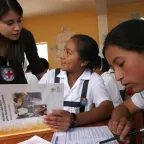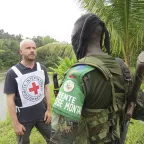Women protected under international humanitarian law
International humanitarian law aims to prevent and alleviate human suffering in war without discrimination based on sex. But it does recognize that women face specific problems in armed conflict, …


